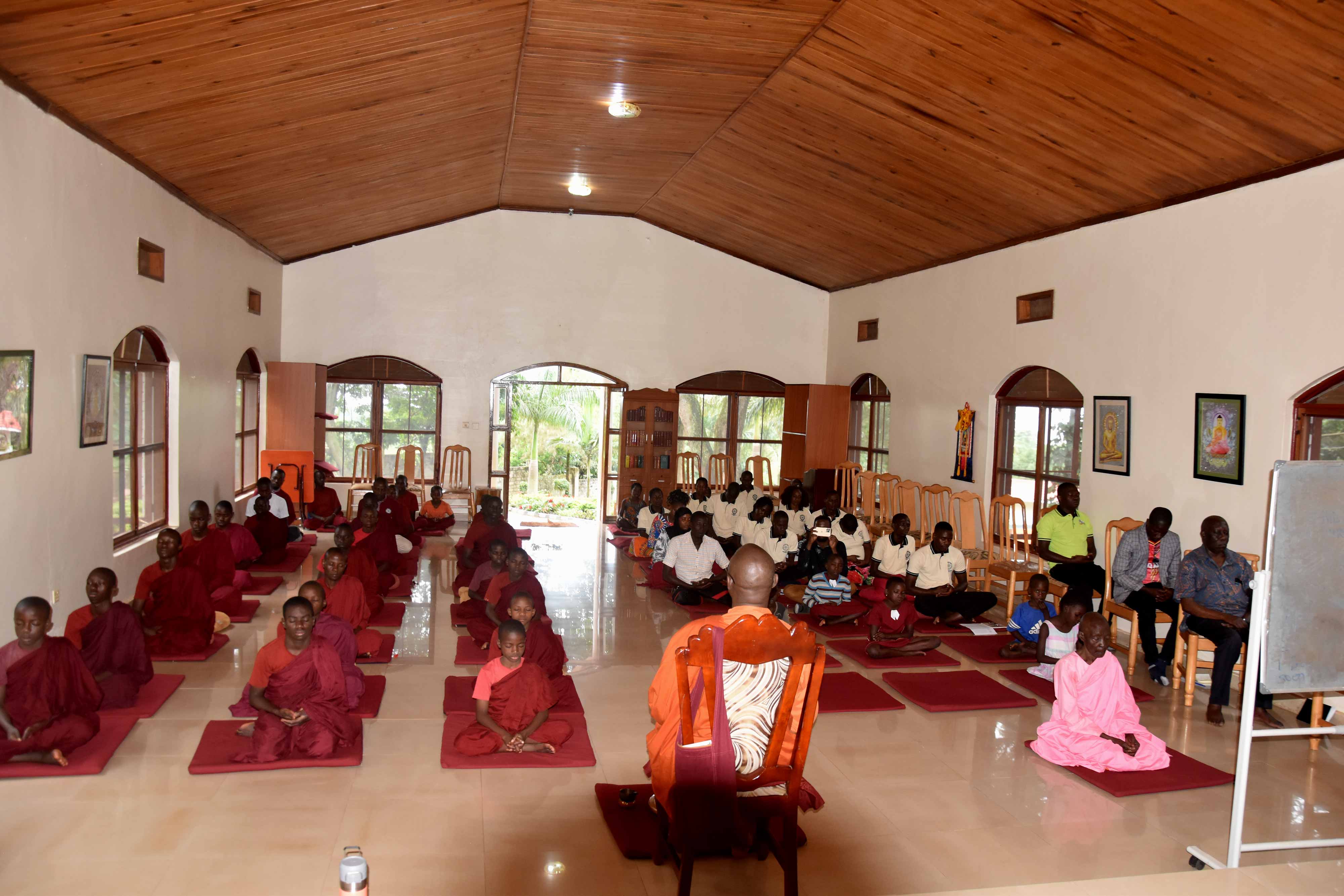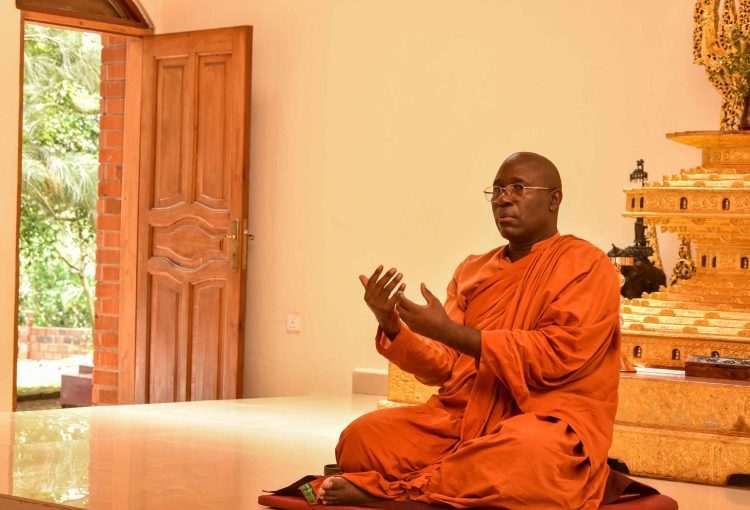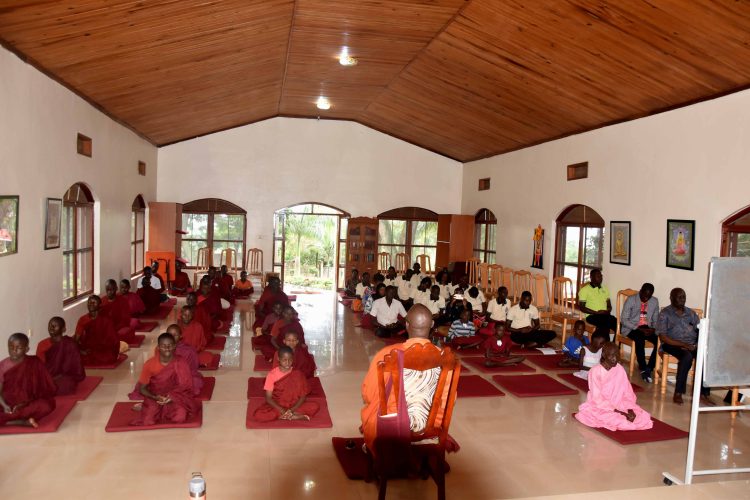Buddhism is more than just a religion; it is a path to a meaningful life.

Embarking on the exploration of Buddhism reveals a profound journey—one that extends far beyond the confines of conventional religion. Guided by the venerable Bhante Buddharakkhita, the abbot and founder, I, Christopher Zziwa, a media and communications assistant at the Uganda Buddhist Centre, feel compelled to uncover the essence of Buddhism. It is not merely viewed as a religion but rather as a transformative path leading to a life of profound meaning.
Today, join me as I delve into my personal experiences and insights, shedding light on the transformative power of Buddhism and its ability to guide individuals toward a more meaningful existence. Just like I said, Buddhism is not just a religion but a transformative path leading to a life of deep meaning.
Before joining the Uganda Buddhist Centre, I thought of Buddhism as just another religion. However, my experience has revealed that it is much more a profound philosophy and a way of life that transcends conventional religious boundaries.
Bhante Buddharakkhita, the abbot and founder of the Uganda Buddhist Centre, emphasizes the profound emphasis on comprehending the nature of existence, the reality of suffering, and the pursuit of liberation. It offers a philosophical framework that addresses fundamental questions about life, consciousness, and the nature of reality.

Bhante Buddharakkhita, during the Sunday service, Dhama talks in Buddhism (preaching)
Unlike many major religions, Buddhism is non-theistic. It doesn’t center around a central deity or creator. Instead, it focuses on individual spiritual development and the pursuit of enlightenment (Nirvana).
Bhante Buddharakkhita teaches the comprehensive ethical system, the Noble Eightfold Path, which is central to Buddhism. It includes principles such as right understanding, right intention, right speech, right action, right livelihood, right effort, right mindfulness, and right concentration. These guidelines aim to promote moral conduct and alleviate suffering.
Buddhism places a strong emphasis on mindfulness and meditation as tools for self-discovery and personal transformation. Individuals seeking mental clarity, stress reduction, and a deeper understanding of their inner selves embrace these practices, extending beyond religious rituals.
The teachings of Buddhism emphasize universal principles that resonate with individuals from diverse cultural and religious backgrounds. Concepts such as compassion, loving-kindness, and the interconnectedness of all beings have an inclusive appeal, just like Venerable Bhante emphasizes that we should always work together and mix like water and milk rather than water and oil.
Buddhism encourages individuals to explore their own experiences, question assumptions, and directly observe the nature of reality. The emphasis is on personal insight and direct experience rather than relying solely on external authorities.
Bhante Buddharakkhita has demonstrated adaptability as it has spread to different cultures. It often integrates with local traditions and practices, emphasizing practical application over strict adherence to a fixed dogma.
He also emphasizes the Buddha’s encouragement for followers to test his teachings through personal experience and critical inquiry. This emphasis on empirical investigation aligns with a more scientific and rational approach to understanding life.
In essence, under the guidance of Bhante Buddharakkhita, Buddhism is a multifaceted tradition that provides individuals with a flexible and practical framework for leading a meaningful and compassionate life.
It goes beyond conventional religious boundaries, offering a path to self-discovery, ethical living, and a deeper understanding of the nature of existence. My journey with Buddhism has been transformative, and I hope that others may find inspiration in exploring its teachings.


